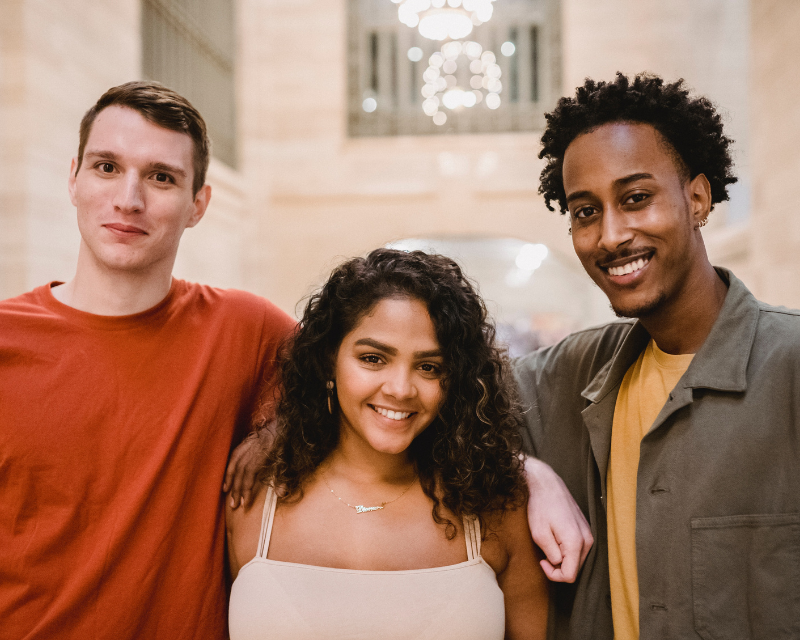What does human trafficking really look like?
Human trafficking doesn’t play out like an action-adventure movie. It rarely involves someone being kidnapped by a complete stranger or lured into a white van decorated with zip ties. Unfortunately, there are a lot of misconceptions out there about how trafficking works and who traffickers target, and that matters. If we don’t represent human trafficking accurately, then people in trafficking situations will have an even harder time recognizing what is happening to them and finding a way to break free. It’s time to listen to survivors and represent their experiences.

“Words like ‘rescue’ turn people off from getting help. It’s too dramatic … You don’t think you are being trafficked, you just think this is your life. So you don’t recognize yourself.“
— Human Trafficking Survivor
Knowing the Story Versus the Signs
Learning the Real Story
For the past two decades, the anti trafficking field has enlisted the public in the fight against human trafficking by asking people to notice and report general “indicators” or “signs” that a person is in a trafficking situation. The truth is, there are unlikely to be visible “signs” that trafficking is happening – unless you know something else about the situation – unless you know the story.
Telling the Real Story
Everything we know about human trafficking – including everything in this guide – comes from the lived experience of people who have come out the other side and shared what they have learned. Learn how to tell the real story of human trafficking.

“One thing that drives me crazy is the whole idea of being a voice for the voiceless. I had always had a voice, even when I was being trafficked.“
— Human Trafficking Survivor
Spread the Word
Stand with us by telling your friends, family, and followers why it’s critical that we listen to survivors in order to fight, prevent, and ultimately end human trafficking. We’ve already made graphics and written key messages for you to easily share. #ListenToSurvivors
Graphics
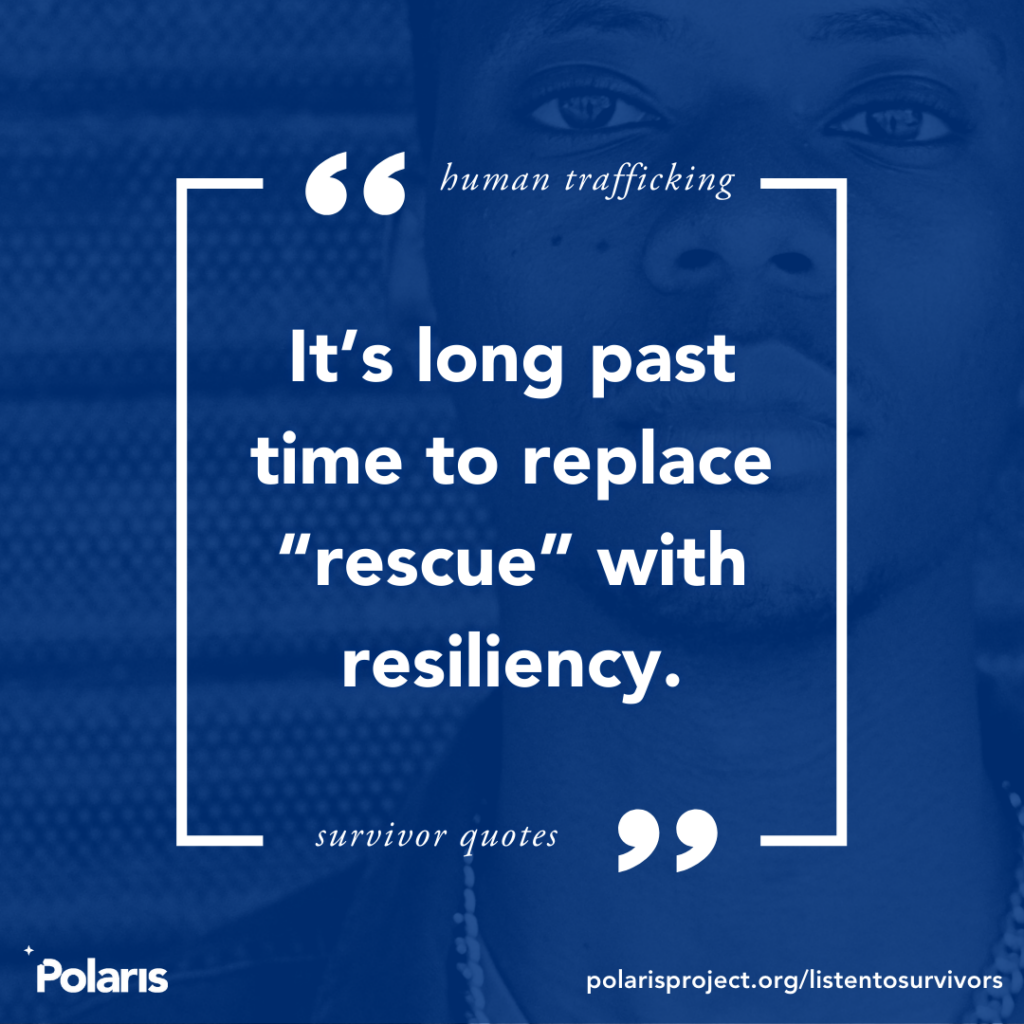
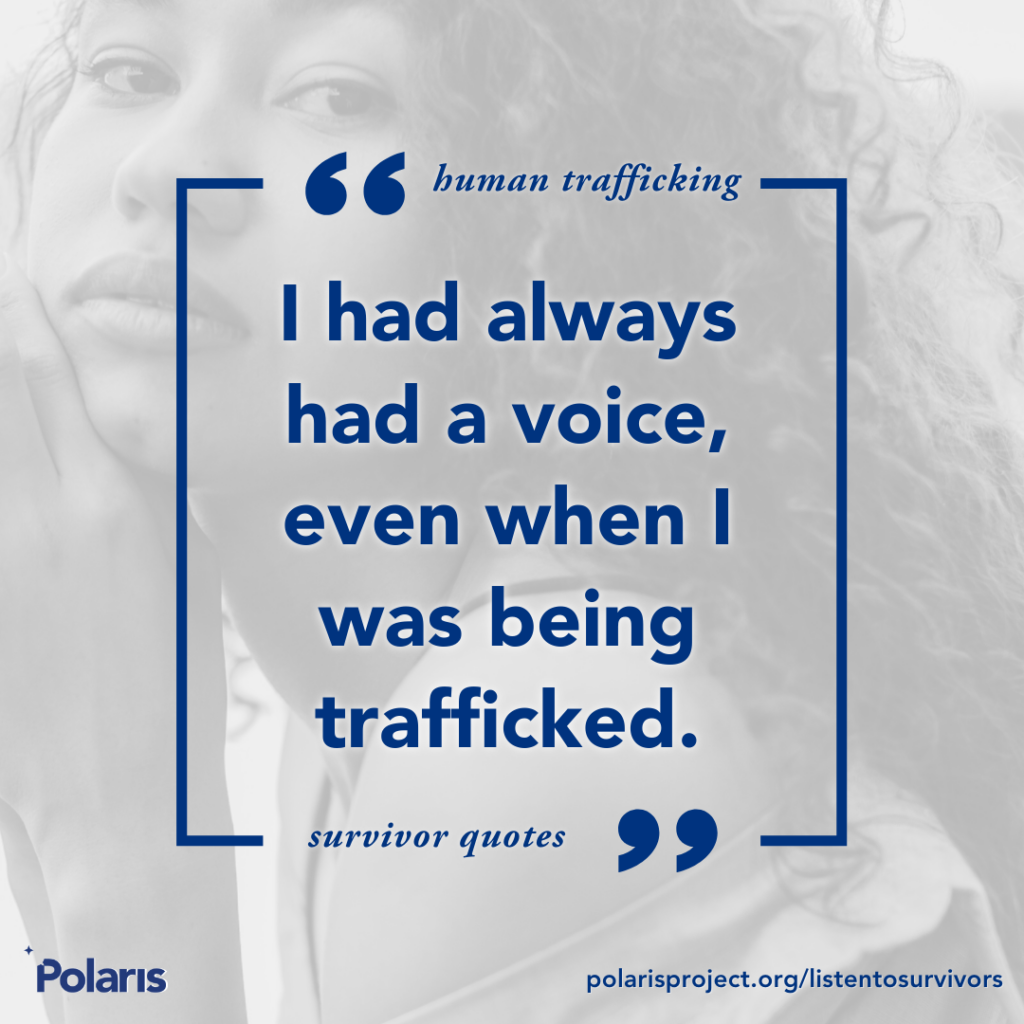
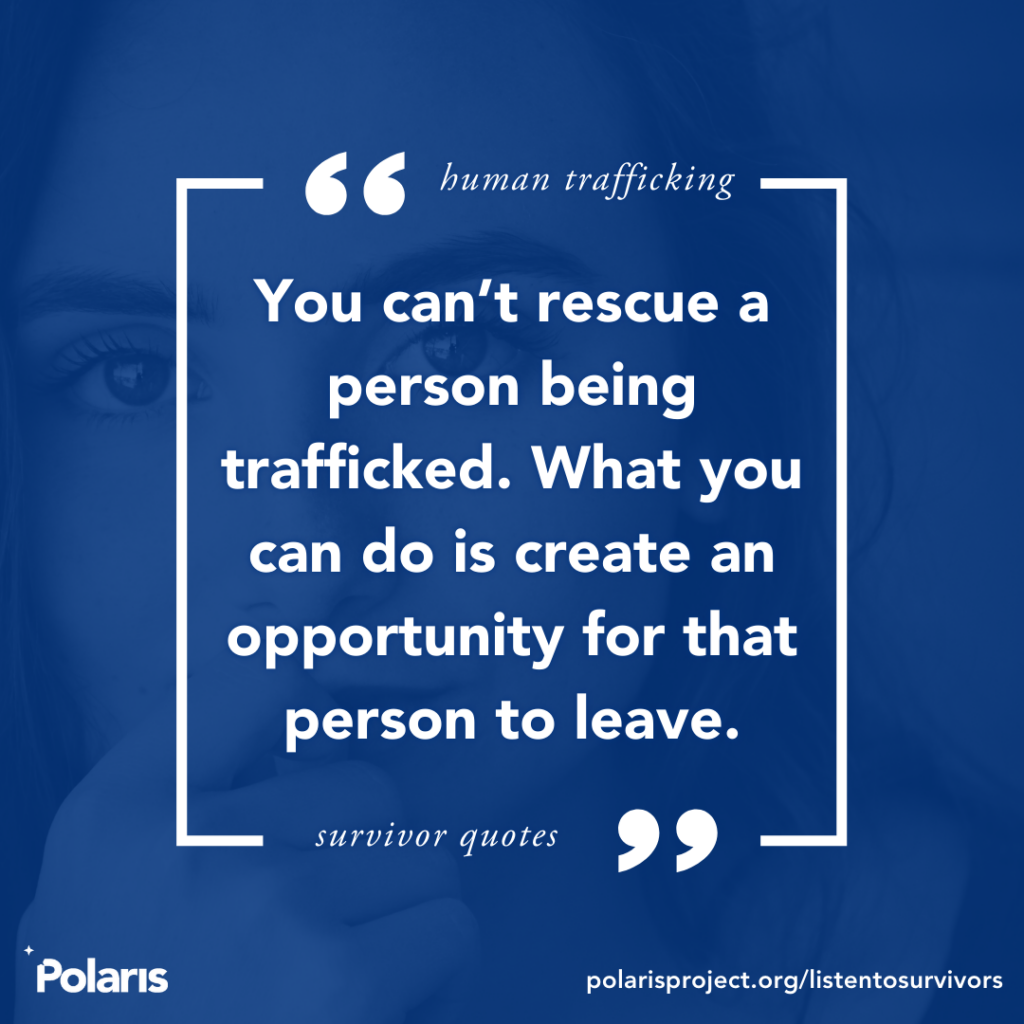
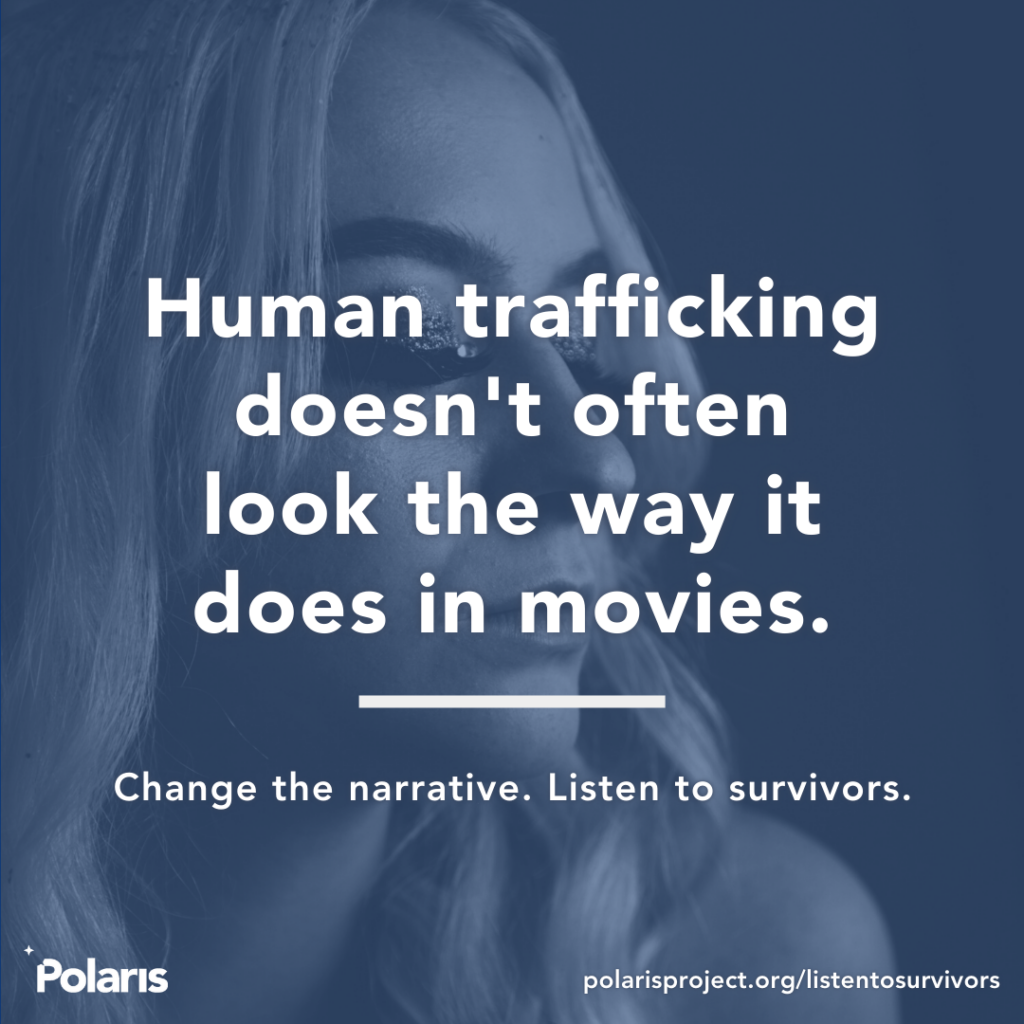

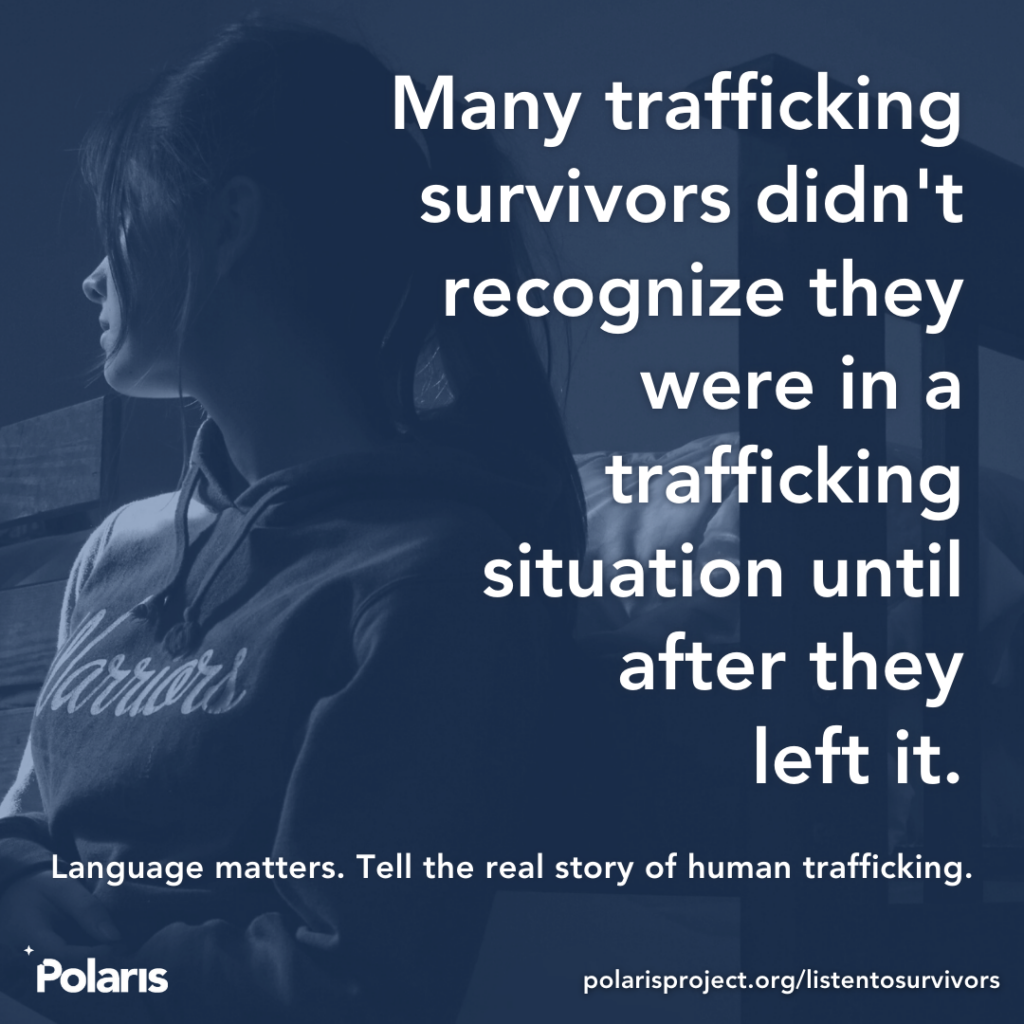

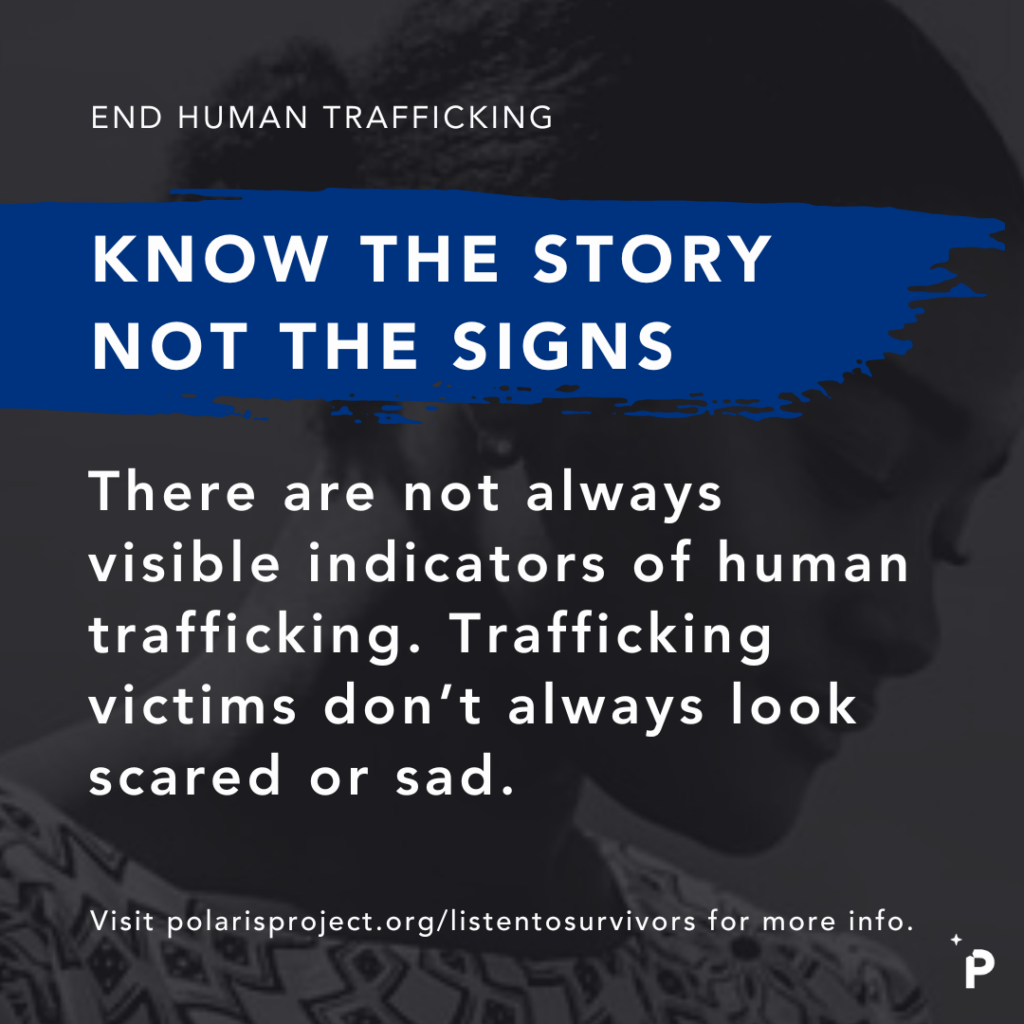
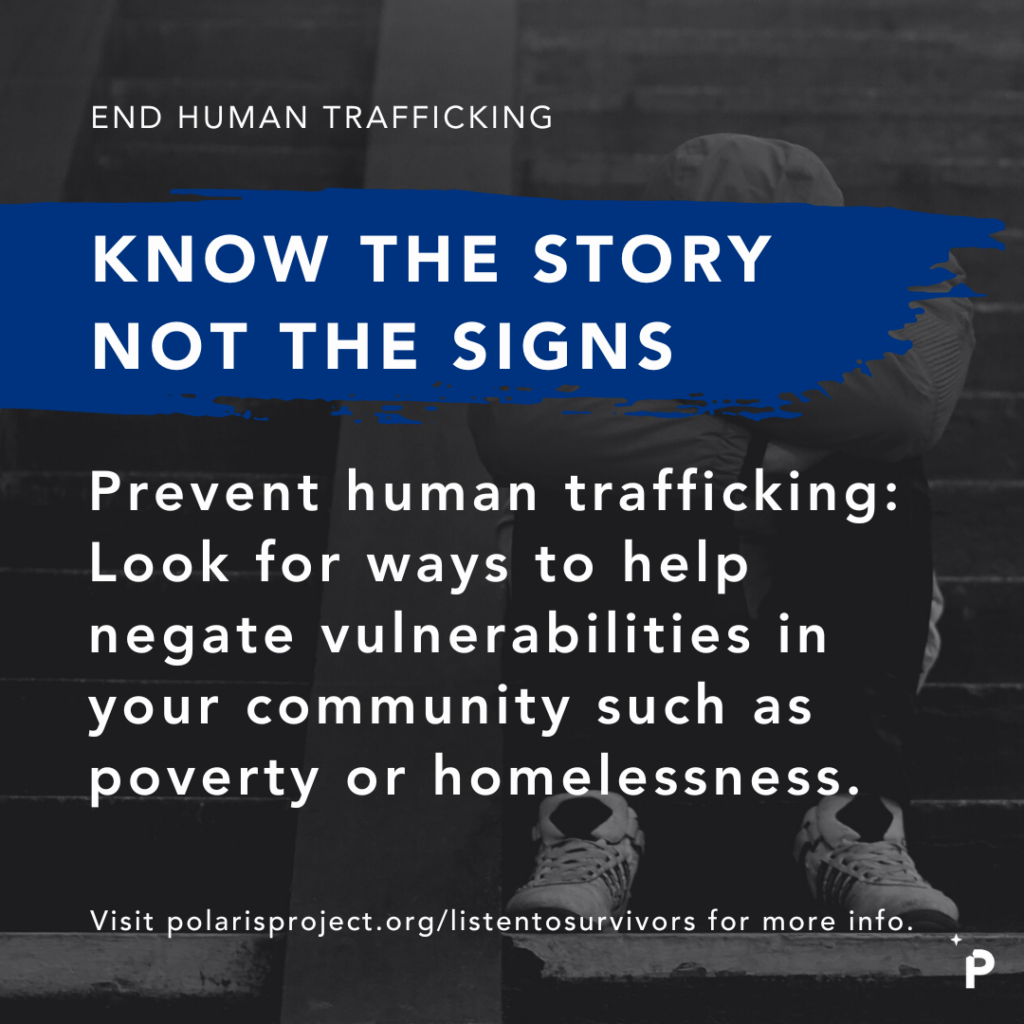
Key Messaging
- For many years, the anti-trafficking field focused on the public’s role in fighting trafficking by noticing and reporting general “indicators” or visual behavioral “signs” that a person is in a trafficking situation. As we’ve listened to survivors and our understanding of the crime has evolved, it is now accepted that without some context, these “signs” are rarely meaningful identifiers of trafficking. Instead of recognizing the signs, it is important to listen to survivors and understand the real story of trafficking.
- The language and imagery we use when we talk about human trafficking shape public perception of what human trafficking looks like, often perpetuating a false narrative of how – and to whom – human trafficking happens. These false narratives actively harm victims and survivors by preventing them from recognizing that they’re in a trafficking situation, leading them to assume that the services and supports available to trafficking survivors have nothing to do with them.
- It is important to understand that trafficking survivors don’t need to be saved. When we use terms like “rescue,” “save,” and “set free,” we are perpetuating a savior narrative that centers us over survivors.
Hashtags
#ListenToSurvivors, #HumanTraffickingAwarenessMonth, #EndHumanTrafficking, #HumanTraffickingHotline, #PolarisProject
Tag Us

“Understanding [that] what happened to you [was] trafficking is a really important part of healing, but it took me 10 years to realize … I was trafficked because my situation was so different from what I had seen represented as trafficking.“
— Human Trafficking Survivor
Additional Resources

Human Trafficking 101
Learn how human trafficking really happens and listen to survivors share their stories through our free Human Trafficking 101 training program.
Love & Trafficking
Human trafficking victims often know, trust, and love their traffickers. Listen to survivors share how love was weaponized in their trafficking situations.


National Survivor Study
This first-of-its-kind study has been made for survivors, by survivors. We’re learning about sex and labor trafficking directly from those that understand it best to inform the anti trafficking movement.
Give Today
Donate today to help support human trafficking survivors find the help and resources they need to get out of their situations, rebuild, and thrive.





